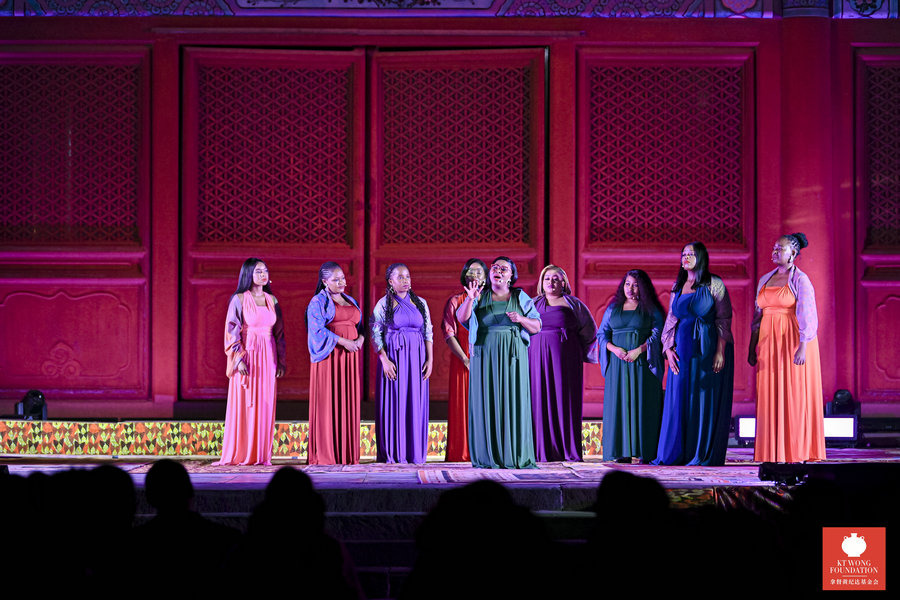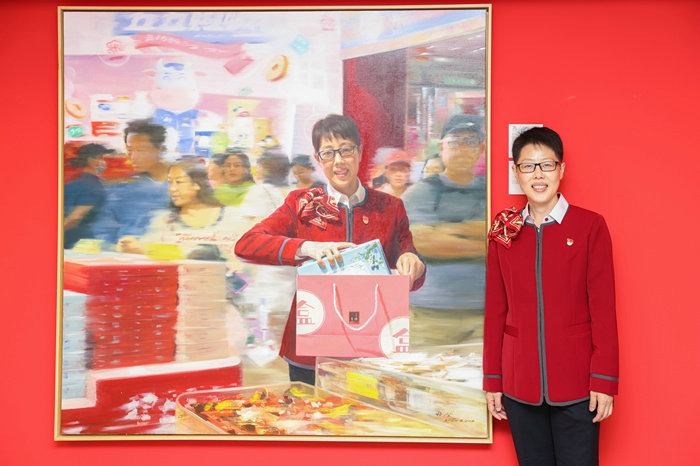Sri Lankan youth fascinated by introduction to Chinese culture

COLOMBO — Nineteen-year-old Sri Lankan Senuda Sapumal carefully watched his Chinese teacher demonstrate how to do calligraphy, then cautiously dipped his brush in ink, and succeeded in writing two large characters representing "friendship". Around him, dozens of students of similar ages watched attentively and were eager to have a go for themselves.
Chinese Culture Meets Students of Sri Lanka, an event hosted by the Chinese Embassy in Sri Lanka, was held on June 25 at the Sri Lanka Boys' Model School in Malabe. Under the guidance of Chinese teachers, young Sri Lankans born after 2000, who are also known as Generation Z, immersed themselves in traditional Chinese culture by practicing calligraphy, learning paper-cutting, and training in martial arts.
"I've seen kung fu movies and chopsticks in restaurants, but this is my first time to experience Chinese culture myself. It is amazing," Sapumal says, proudly holding up his calligraphy and posing for a photo to capture the moment.
The students here are no strangers to China. Sapumal says that his teacher told them their school uniforms were donations from China. "China, Friendship," he says.
On the other side of the classroom, a long display table is filled with Chinese crafts: Peking Opera masks, enamel vases, fan screens, and tea sets. Many students paused to look at them.
"What do the masks signify?" "During which festival do you hang lanterns?" "Which Chinese zodiac sign is mine?" The students eagerly asked questions. Upon receiving an answer, several senior students showed photos on their phones of traditional Sri Lankan masks and paper lanterns lit during the Vesak festival.
"It turns out Chinese culture is very similar to ours. It feels like China is closer to us now," one student says.
Zhang Min, a teacher at the Bandaranaike Center for International Studies, says that additional Chinese Culture Meets Students of Sri Lanka events will take place at 11 primary and secondary schools in Sri Lanka within the next six months, and that the current program is the third of its kind.
"I teach Sri Lankan students Chinese paper-cutting. When the children open their cut-out designs, their expressions of surprise are like a result of 'a magic moment'. Many times, students tell me they hang them in their windows at home to share the joy with their families," Zhang says. "I hope that these immersive experiences will plant the seeds of Chinese culture in the hearts of students, and gradually take root and thrive."
"I am about to enter university and I'm preparing to study architecture in China. That's what I have always dreamed of," says Sapumal.




































